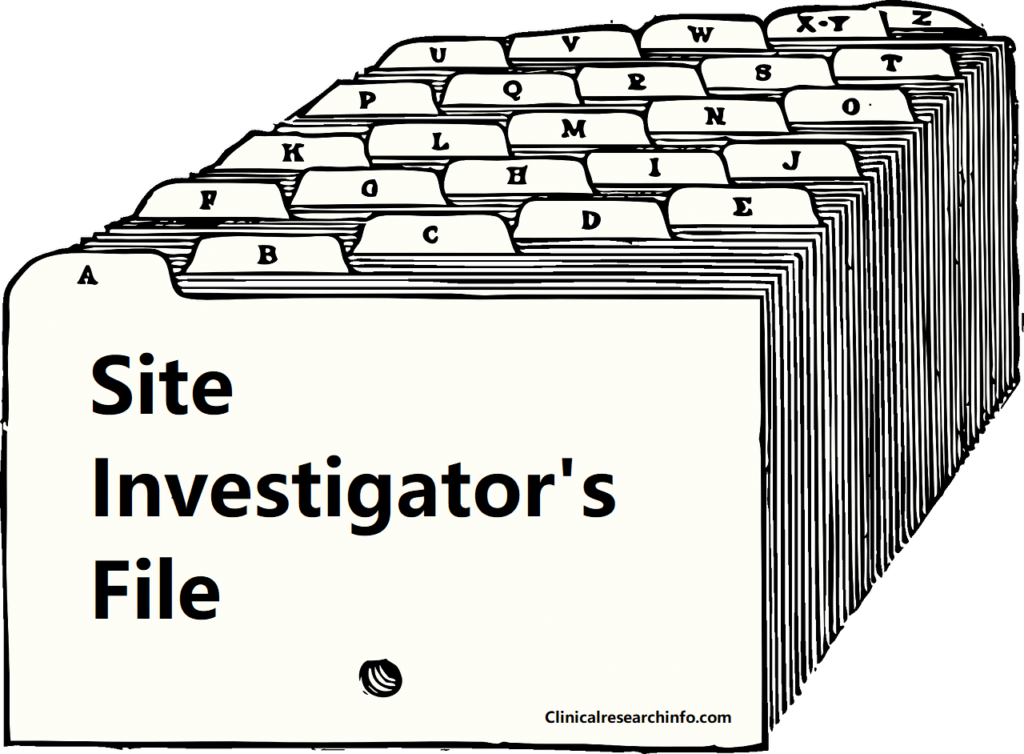ISF plays a critical role in a study’s success. The investigator site file consists of trial documents from the initiation to closeout. Maintaining the site file is the responsibility of principal investigators. Principal investigators are doctors or any medical practitioner for a particular disease or indication.
Principal Investigators have many responsibilities. They conduct clinical trials under investigation. They verify informed consent and protect the rights and welfare of the patients according to applicable regulations.
Importantly, investigators are responsible for preserving all data relating to a study before, during, and after the clinical trials. If documentation and filing are not followed as per ICH GCP and GDP (good documentation practice), it can lead to 483, FDA warning letters, disqualifications or restrictions, and, in extreme cases, even criminal prosecutions.
This is why an Investigator site file is critical – but can also be so daunting (CRC knows!!!!).
For easy understanding, we are dividing clinical trials into the phases – Before the clinical trial, During the trial, and after the trial.
Before the Clinical Trial
Before the trial starts i.e trial initiation, the following documentation must be filed:
- Investigator’s Brochure (IB) – Implies scientific information about the investigational product.
- Study protocol – this includes the effective version of the protocol as well as any amendments, addendum, erratum, and obsolete protocols.
- Informed consent documents – Document given to the trial subject (patient). This includes the translated and back-translated consent form itself in addition to any other written information provided to support the consent and advertisements for recruitments used.
- Financial agreements i.e clinical trial agreements (CTA)
- Insurance statements
- Signed agreements between involved parties – any agreement an investigator or institute has with a sponsor, CRO, and other authorities.
- IRB/IEC submission and review and approval.
- Regulatory authority approval (e.g. DCGI, USFDA) of the protocol.
- Curriculum Vitae of investigator– qualifications, and eligibility to conduct the trial for all research personnel, including resumes and certifications (e.g. ICG GCP).
- Instructions for investigational product and IP materials handling
- Shipping records – trial-related materials
- Decoding procedures for blinded trials e.g. envelopes
- Pre-trial monitoring report and training documents
- Investigator’s Undertaking
- Form 1572, Form 3455
During the Clinical Trial
As the trial progresses for the recruitment, the following documentation should be added to the files :
- Updates to the IB i.e versions of IB
- Revisions to the protocol, informed consent form, and subject diary
- IRB notifications or approval and approval of amendments
- Regulatory authority approval of amendments/revisions
- Curriculum Vitae for any designated new personnel
- Revisions to normal values and/or ranges of the tests
- Additional shipping records or manifests for trial-related materials
- Relevant email communications and correspondences (other than site visits) – includes letters, meeting notes, and notes of phone calls or telephonic contact report
- Signed consent forms (can be a file in the subject file)
- Source documents (can be a file in the subject file)
- Completed, signed, and dated case report forms (CRF) and corrections to CRF. eCRF guidelines.
- Adverse events and Serious adverse events reports
- Notification of safety information by the sponsor
- Interim or annual reports to IRB (as per IEC/IRB requirement)
- Subject screening log
- Subject randomization log
- Subject ID code list
- Subject enrollment list
- Investigational product accountability
- Protocol Signature sheets
- Record of retained samples or destructed samples
After the Clinical Trial
At the end of the trial, the final documentation must be added to the file:
- Final investigational/drug products accountability – verifies the drug has been used according to the randomization schedule.
- Documentation of investigational product destruction – the destruction of unused/spilled drugs should be documented if destroyed at the study site or depot.
- Completed subject ID code list.
- Final report – documents the completion of the trial.
- Clinical study report – results and interpretation of the trial.
- IEC notification for the trial completion and site close.
Conclusion
Handling of documents is a critical role. The designated person and investigator have to understand the criticality of each document. This is, needless to say, a lot to keep track of. There are a lot of versions that happen when the trial continues for the years. Considering the bulk of papers and handling of documents, it is difficult to pace and track everything.
In conclusion, the site should focus on an approach for the tracking of documents. Using eSIF is highly recommended.



